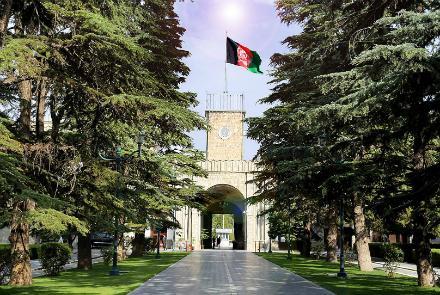Afghan officials on Tuesday rejected reports about the possibility of direct peace talks between the US and the Taliban, and maintained any negotiations would be an Afghan-owned and Afghan-led process.
“The peace negotiations will only be held under the leadership and ownership of the Afghan government, but the United States of America can have a facilitator role in this regard,” said the CEO’s deputy spokesman Omid Maisam.
Meanwhile Gulbuddin Hekmatyar, the reconciled leader of Hizb-e-Islami group, on Tuesday said that US officials consulted him about the prospects of holding talks with the Taliban to end the 17-year-long war.
Hekmatyar said: “I told them (Americans) that my suggestion to the Taliban was to enter into inter-Afghan dialogue, because it is good for the dignity of the people and it also helps to resolve the crisis in Afghanistan. But if they (Taliban) want to meet you (Americans), I don’t see any problem with it and you (Americans) can jump-start the negotiations,” said Hekmatyar.
Hekmatyar also said he told US officials to tell the Taliban to hold talks with the Afghan government as it was important for the Taliban’s dignity and also a step forward towards resolving the ongoing crisis in Afghanistan.
Political commentators said however that internal rifts between the leaders of National Unity Government (NUG) might have resulted in the US rethinking its stance only holding direct talks with the Taliban.
This comes a week after Principal Deputy Assistant Secretary for the Bureau of South and Central Asian Affairs Alice Wells met with Hekmatyar in Kabul and discussed a range of issues including the prospects for a direct talks between the US and the Taliban.
But a spokesman for the Taliban’s office in Qatar has said that the group had not yet been contacted by US officials, but that if this happened, they would welcome the move.
Questions have however been raised over why the Taliban refuse to hold talks with government.
One political analyst, Nazar Mohammad Mutmaeen, said rifts within government have not helped and efforts to get the Taliban to the talks tables have also failed.
“The Afghan government is suffering from internal disputes and their efforts to press the Pakistani government to bring the Taliban (to the talks tables) and also the conference in Saudi Arabia have not yielded any results,” said Mutmaeen.
This comes after the New York Times reported early Monday morning that the US was preparing to talk with the Taliban.
Although the Presidential Palace (ARG) has not officially responded to the report as yet, the office of the CEO Abdullah Abdullah rejected claims that US-Taliban talks were on the cards.
Reuters meanwhile reported that US officials said the United States is preparing to undertake a review of its strategy in Afghanistan, a year after Trump begrudgingly agreed to extend America's involvement in the war.
But government authorities in Afghanistan insist that any talks regarding peace will be an Afghan-owned and Afghan-led process and that the US would only have a facilitator role.
Meanwhile, the Wall Street Journal, quoting some Afghan and US officials involved in the peace process, said that the Afghan government is seeking to announce another ceasefire in the near future with the hope of renewing efforts for peace talks.
According to New York Times, the June ceasefire announced by President Ashraf Ghani was the idea of Resolute Support Commander Gen. John Nicholson. But a close aide to Ghani rejected this claim and said it had been Ghani’s idea but that it had had the support of the foreign troops.
Nevertheless, former president Hamid Karzai said in a recent interview with China’s CCTV that Washington’s recent policy shift on Afghanistan has not proved constructive.
“Unfortunately it is not working at all, the security situation in Afghanistan has worsened considerably and the suffering of our people has increased considerably, it is exactly because of this that there are a lot of cries in Afghanistan for a change in the policy that the United States has adopted towards Afghanistan not only in the past year of President (Donald) Trump but even before that. Change for us means an end to war, an end to violence and the return of peace,” said Karzai.


